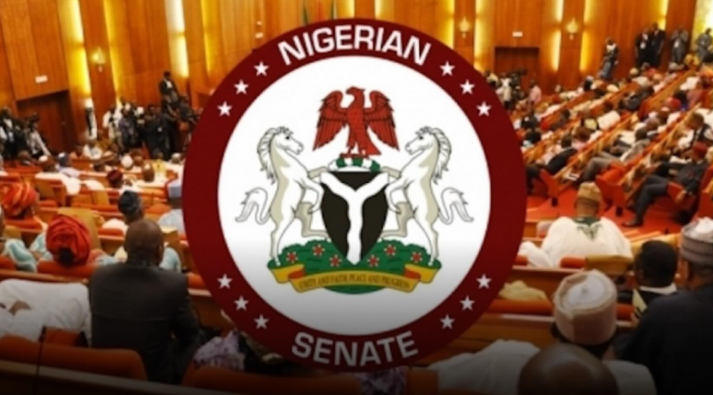
FALZ SLAMS GOVERNMENT SILENCE AS RESCUED KEBBI GIRLS RETURN: “WHO HAS BEEN ARRESTED?!”

Nigerian rapper and activist Folarin Falana, popularly known as Falz, has once again ignited a national conversation after publicly questioning the Federal Government’s handling of the recently rescued abducted schoolgirls from Kebbi State. While the country celebrates the safe recovery of the children, Falz insists that silence surrounding the abductors is both alarming and unacceptable, accusing the Tinubu-led administration of enabling a dangerous cycle of insecurity.
The news of the girls’ rescue had sparked relief nationwide, as parents, activists, and communities rejoiced over what could have otherwise become another drawn-out tragedy. But the response shifted sharply when Falz took to social media, calling out what he described as a glaring gap in the narrative: the complete absence of information about the kidnappers responsible for the incident in the first place. His post, which quickly went viral, captured the frustration of many Nigerians who feel that the battle against banditry and terrorism has become clouded by opacity, political narratives, and selective reporting.
Falz wrote with visible urgency: “HOW CAN YOU CONDUCT A RESCUE OPERATION & YOU ARE SAYING ABSOLUTELY NOTHING ABOUT THE ABDUCTORS?!! WHO HAS BEEN ARRESTED SO FAR?!” His words struck a nerve, tapping into a long-standing question that surfaces every time a mass abduction happens in the country: if victims are rescued, why are the perpetrators almost never named, paraded, or prosecuted publicly? Why does the spotlight always shine bright on the rescue but fade completely when it comes to justice?
This concern becomes even louder when placed against Nigeria’s ongoing struggle with insecurity across the northern region. Over the years, abductions—particularly of schoolchildren—have become horrifyingly commonplace. Each incident is followed by a similar pattern: an initial outcry, reports of a rescue or release, and then eerie silence about the abductors who executed the crime. Falz’s comments reflect the weariness of a population that has seen this cycle too many times to count, a pattern that suggests either operational incompetence or a deliberate choice to avoid exposing the truth.
In a follow-up post, he intensified his criticism, stating: “Let it be on record that the Tinubu government is enabling tewain. Despicable.” His use of the word “enabling” quickly stirred political reactions, with many interpreting it as an accusation that the government is knowingly allowing criminal networks to thrive by refusing to dismantle them openly. The sentiments resonated with citizens who regularly watch the security apparatus appear reactive rather than proactive, arriving only after lives have been disrupted, stolen, or traumatized.
Security analysts have long argued that transparency is a crucial element in combating terrorism and banditry. When governments share details about arrests, recovered weapons, captured masterminds, or successful intelligence operations, it boosts public confidence. But more importantly, it sends a message to criminal groups that their activities will be met with consequences. The absence of such information, however, has the opposite effect: it creates room for speculation, reopens old wounds from unresolved tragedies, and fuels distrust between citizens and the state.
For Falz, whose activism has grown more pronounced since the End SARS protests, the silence represents a deeper problem. His outburst signals his belief that security failures are not isolated occurrences but symptoms of a system that has normalized impunity. Nigerians often ask the same question he posed: Who are these abductors? How many arrests have been made? What networks do they belong to? Where are the prosecution updates? Without such answers, every “rescue operation” feels incomplete, like a story missing its final chapter.
The situation in Kebbi is especially sensitive because of the young victims involved. Their abduction rekindled painful memories of Chibok, Dapchi, Kankara, Jangebe, Tegina, and numerous other schoolkidnappings that shattered Nigeria’s global reputation and left hundreds of families in anguish. In each of these cases, the narratives of return overshadowed the accountability that should have followed. To this day, many Nigerians cannot name a single high-profile abductors’ leader who has been prosecuted to the fullest extent of the law.
In Falz’s view—and in the view of many—this failure creates the perception that criminal actors operate with little fear of government reprisal. It becomes difficult to believe that insecurity is being confronted with the seriousness it demands when the public is not informed about consequences for those who orchestrate such terrifying crimes.
The reactions to Falz’s comments on social media were immediate and intense. Supporters applauded his courage, stating that he had voiced what millions were thinking but few were willing to say publicly. Many Nigerians urged the government to provide clarity, insisting that accountability must accompany every rescue. Others criticized him, claiming that his words were too harsh or politically charged, arguing that the rescue should be celebrated rather than overshadowed by confrontation. But even some of the critics admitted that the silence on the abductors raises valid questions.
Human rights organizations echoed similar concerns, calling for a transparent briefing on the operation. According to them, security agencies owe the public a clear outline of what transpired, whether ransom was paid, whether any suspects were captured, and what the next steps will be to prevent future attacks. In a country where communities live with constant fear of raids, kidnappings, and school invasions, the demand for information is not just a matter of curiosity—it is a plea for reassurance and effective governance.
While the Tinubu administration has not issued a detailed public response to Falz’s accusations, the government’s security aides have consistently stated in the past that revealing too much information could compromise ongoing operations. But critics argue that this explanation has been overused and lacks credibility, especially in cases where the abductors seemingly vanish into thin air after every rescue. Accountability, they insist, cannot be sacrificed under the pretext of secrecy.
Falz’s criticism may be harsh, but it taps into a painful national truth: Nigeria is tired. Tired of cycles of violence, tired of unanswered questions, tired of being asked to celebrate half victories while the perpetrators roam free. His voice—loud, emotional, and uncompromising—has once again forced the country to look inward and confront uncomfortable realities.
As the rescued Kebbi girls reunite with their families and attempt to heal from their ordeal, one question continues to echo across the country, amplified by Falz’s thunderous post: If we cannot identify or apprehend the abductors today, what stops them from striking again tomorrow?
Until that question is answered clearly and convincingly, Nigeria’s victories against insecurity will remain incomplete—and the voices demanding accountability, like Falz’s, will only grow louder.


